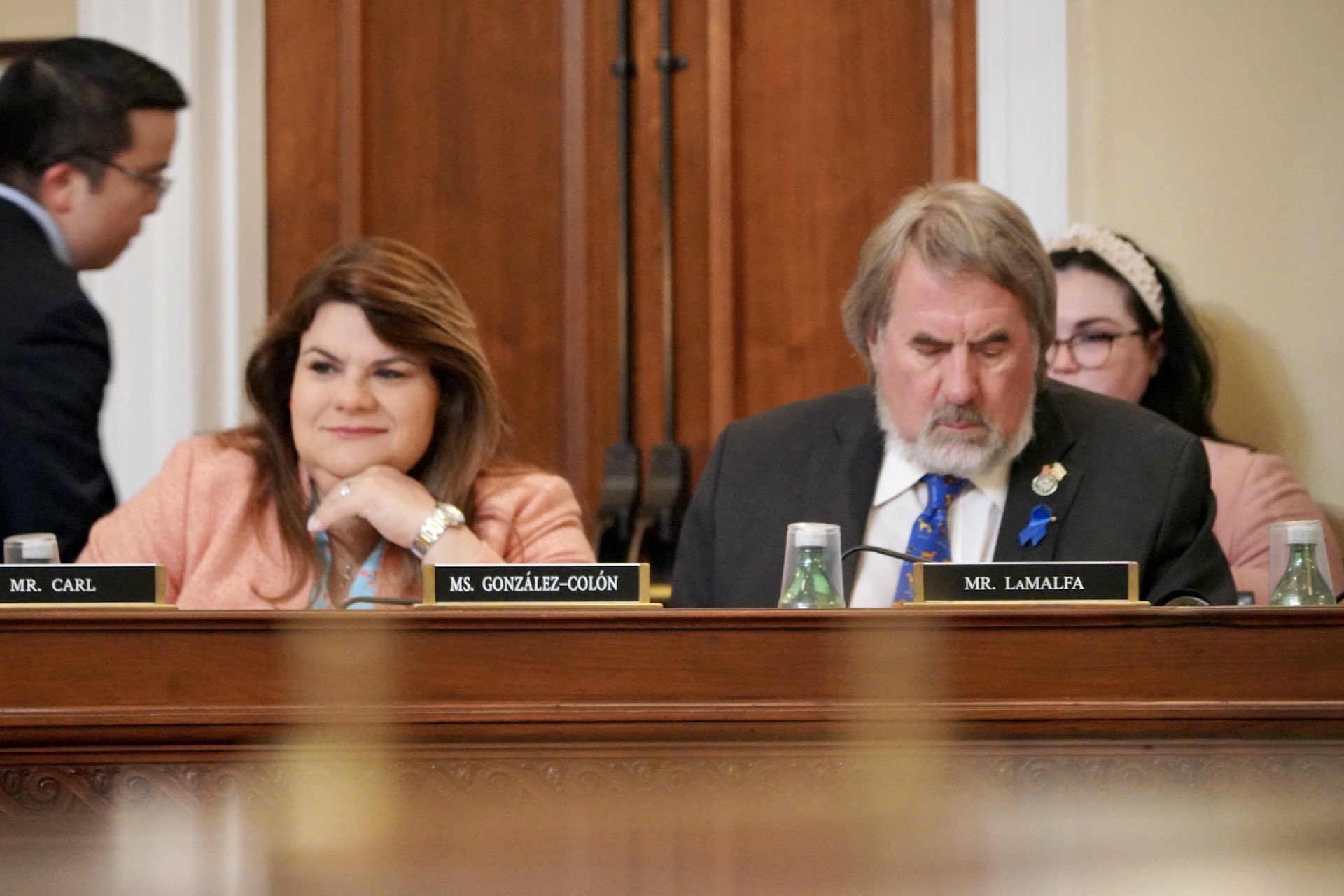George Laws Garcia, Executive Director of the Puerto Rico Statehood Council, talked with Rep. Gonzalez-Colon on the issue of territory status.
Gonzalez-Colon is the Resident Commissioner for Puerto Rico, the only representative of Puerto Rico in the U.S. Congress. She expressed frustration with the limitations of her role.
“We do not have a proportionate delegation representing the Island,” she said. “I don’t have the power of a vote on the floor of the House.” This is incontrovertible evidence of the unequal treatment of Puerto Rico in the federal government. She went on to describe her role as “begging.”
Rep. Gonzalez-Colon pointed out that the Supreme Court has given Congress permission to discriminate against Puerto Rico, denying the Island benefits and rights “just because we are a territory.”
As Resident Commissioner for Puerto Rico, Gonzalez-Colon is the only voice the Island has in Congress. Without a vote, she has to rely on her ability to influence other — voting — members of Congress. “The only way we can make a difference here is by going directly to each member.”
Gonzalez-Colon identified another real problem. “You will have a lot of people that will self-proclaim that they are representing the Island and they will do many things just to score points at the national level and not necessarily helping the people that live on the Island.”
Inequality
The conversation touched on the inequalities experienced by people living in Puerto Rico, regardless of where they were born. Residents of Puerto Rico do not have full representation in Congress, they cannot vote in U.S. presidential elections, they do not receive the same benefits as residents of states, and they are not granted the same rights as other U.S. citizens.
Gonzalez-Colon pointed out that people sometimes call for changes in the laws that keep Puerto Rico in an unequal position. The problem, she said, is that Congress can change the law and the next Congress can change it again. As a state, Puerto Rico will have equal rights and responsibilities with the other states.
Thriving
Gonzalez-Colon also pointed out that the lack of stability created by territory status interferes with investments and entrepreneurs in Puerto Rico. Puerto Rico has the potential to be a bridge between the United States and Latin America and to bring manufacturing back from China and other offshore locations. Yet the territorial status interferes with this impressive potential.
“For some federal laws we are treated like a state and for some we are a foreign country. This is crippling our economy, because some companies don’t know how to deal with that,” she explains. “That’s the lack of stability that this territorial position of the Island is impeding a lot of Puerto Ricans to succeed, to thrive.”
Gonzalez-Colon reminded listeners that Hawaii’s economy tripled after statehood. Just imagine, she suggested, what that would mean for Puerto Rico.








No responses yet